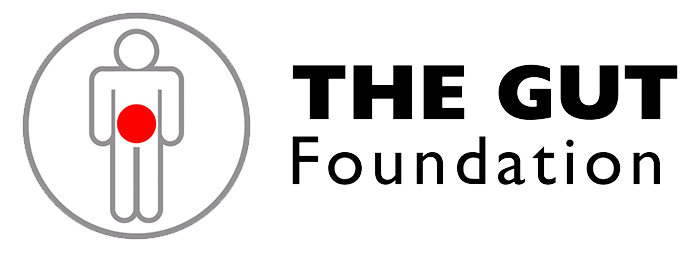Irritable Bowel Syndrome
What causes IBS
The cause if IBS is not known. In about 25% of cases, IBS start soon after an attack of gastroenteritis (diarrhoea). Perhaps toxins released during the infection may damage nerves which in turn cause abnormal muscular contraction of the bowel.
It appears as though individuals with IBS are sensitive to bowel distension. Medical research emphasizes the complicated brain/bowel interaction. Many nerve to muscle messages in the bowel are similar to those in the brain and reactions can be triggered by emotion. This is why people may get diarrhoea when nervous.
Some people may be sensitive to certain foods but IBS appears unlikely to be directly related to a particular food.
Who gets IBS?
IBS is the most common disorder of the digestive tract and may affect 30% of the population at some time in their life. It can occur at any age but is most common between 20 and 60 years, symptoms usually start before 40. Females are affected more often than males. Symptoms may be worse around menstruation or at times of stress.
How is IBS diagnosed?
IBS does not reduce life expectancy. However, quality of life may be significantly affected. There is no specific test. Your doctor can usually suspect IBS fro the pattern of symptoms although it is often necessary for a doctor to exclude other conditions with similar symptoms.
This may well involve colonoscopy (examination of the large bowel under sedation using a thin flexible lighted instrument) and at times endoscopy.
Colonoscopy is essential if:
- You have/had bowel cancer or polyps
- You are over 40 years of age
- You have a family history of bowel cancer or polyps
- You have bleeding from the bowel
- You have persistent diarrhoea
- You are anaemic
Rectal bleeding is not due to IBS and requires colonoscopy. Please see your doctor.
What to do about IBS?
Once your doctor has excluded other conditions, a variety of therapies may be of value.
- Many people are worried that their symptoms may be due to cancer. Improvement may not occur until you are confident that serious diseases have been excluded. Talk openly to your doctor.
- Lifestyle and diet may aggravate your symptoms. Are your symptoms worse with stress? Do you drink too much alcohol? Are your symptoms worse after milk (lactose intolerance)?
- Are you taking medication which might aggravate diarrhoea? (eg antibiotics, antacids, laxatives, some tablets for blood pressure).
- Are you taking medication which might aggravate constipation? (eg antidepressants, iron tablets, pain killers, tranquillizers, some tablets for blood pressure).
- A good healthy diet is essential for all. Eat more fruit, vegetables, breads and cereals (preferably wholegrain). Eat moderately – lean meat, chicken, fish, milk, cheese, yoghurt, eggs. Eat least – fatty, salty and sugary food.
- Dietary fibre. A high fibre diet helps most people with IBS. (See Gut Foundation leaflet on dietary fibre and health www.gutfoundation.com)
Irritable Bowel syndrome (IBS) is a collection of symptoms which doctors link together into one disorder.
These symptoms may be abdominal pain, diarrhoea, gas (wind), variable bowel habit, bloating or urgency to empty the bowel.
What are the symptoms?
Symptoms of IBS vary from person to person and come and go with attacks lasting hours, days or weeks.
- Abdominal pain is usually in the lower abdomen often worse in the morning and relieved by having a bowel movement or passing wind
- Bloating or a feeling of fullness
- Offensive wind is common
- Diarrhoea
- Constipation
- Erratic bowel movements
High fibre foods include:
- Wholemeal bread
- Wholegrain cereals
- Legumes (beans, peas and lentils)
- Fruits (but not juice)
- Nuts and seeds
- Vegetables (cooked vegetables often have more fibre than salads)
Windy foods include:
- Lactose in milk
- Cabbage, Brussels sprouts and cauliflower
- Legumes (beans and peas)
- Sorbitol and mannitol (in some low kilojoule foods)
Bulking agents
As well as adequate intake of dietary fibre a bulking agent may be helpful. Convenient bulking agents include Psyllium, Metamucil, Agiofibe, Normafibe and Alvercol.
Drugs
Meberverine (eg, Colofac) is an anti-spasm medication often highly effective in relieving pain and urgency. It must be take on a long-term basis. Some antidepressants (tricyclic compounds such as Tryptanol or Amitriptyline) have a separate effect on nerves and muscles in the bowel and bladder and are often helpful in relieving pain.
Use only if Meberverine has failed. Zelmac is occasionally useful in constipation-predominant IBS I females. If the predominant problem is watery diarrhoea, anti-diarrhoeal agents such as Imodium or Lomotil are often useful. Laxatives are rarely useful for Irritable Bowel Syndrome. A high fibre diet and bulking agents may be useful even when diarrhoea is a problem.

